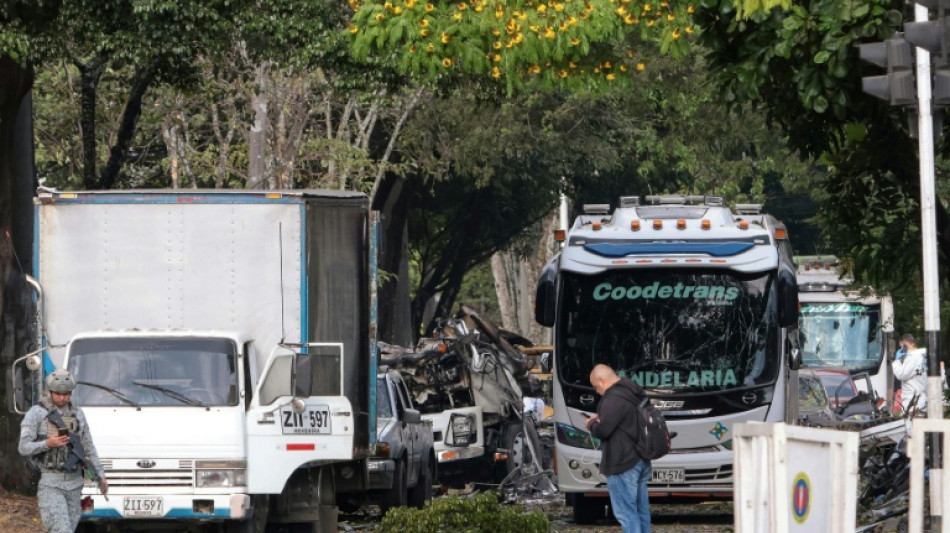
-
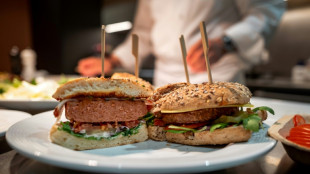 'Veggie burgers' face grilling in EU parliament
'Veggie burgers' face grilling in EU parliament
-
Trio wins physics Nobel for quantum mechanical tunnelling

-
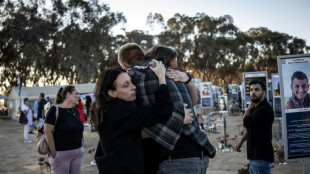 Two years after Hamas attack, Israelis mourn at Nova massacre site
Two years after Hamas attack, Israelis mourn at Nova massacre site
-
German factory orders drop in new blow to Merz
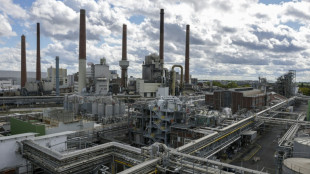
-
 Man City star Stones considered retiring after injury woes
Man City star Stones considered retiring after injury woes
-
Kane could extend Bayern stay as interest in Premier League cools

-
 Renewables overtake coal but growth slows: reports
Renewables overtake coal but growth slows: reports
-
Extreme rains hit India's premier Darjeeling tea estates
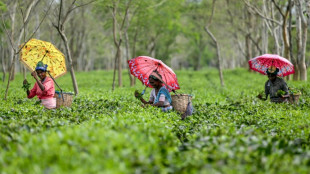
-
 Raducanu retires from opening match in Wuhan heat with dizziness
Raducanu retires from opening match in Wuhan heat with dizziness
-
UK's Starmer condemns pro-Palestinian protests on Oct 7 anniversary
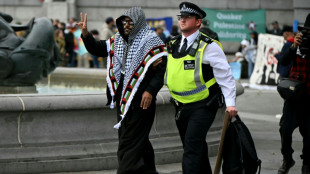
-
 Tokyo stocks hit new record as markets extend global rally
Tokyo stocks hit new record as markets extend global rally
-
Japan's Takaichi eyes expanding coalition, reports say
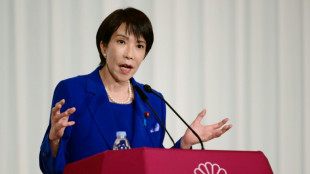
-
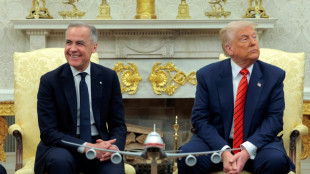 Canadian PM to visit White House to talk tariffs
Canadian PM to visit White House to talk tariffs
-
Indonesia school collapse toll hits 67 as search ends
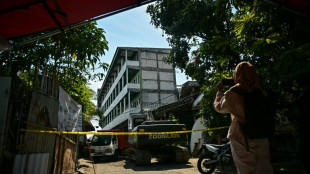
-
 Dodgers hold off Phillies, Brewers on the brink
Dodgers hold off Phillies, Brewers on the brink
-
Lawrence sparks Jaguars over Chiefs in NFL thriller
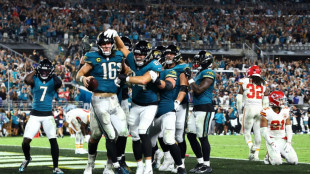
-
 EU channels Trump with tariffs to shield steel sector
EU channels Trump with tariffs to shield steel sector
-
Labuschagne out as Renshaw returns to Australia squad for India ODIs

-
 Open AI's Fidji Simo says AI investment frenzy 'new normal,' not bubble
Open AI's Fidji Simo says AI investment frenzy 'new normal,' not bubble
-
Tokyo stocks hit new record as Asian markets extend global rally

-
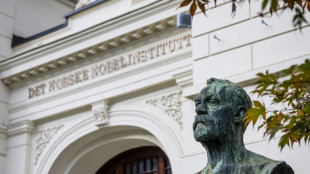 Computer advances and 'invisibility cloak' vie for physics Nobel
Computer advances and 'invisibility cloak' vie for physics Nobel
-
Nobel literature buzz tips Swiss postmodernist, Australians for prize
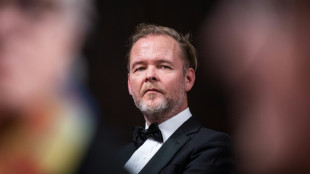
-
 Dodgers hold off Phillies to win MLB playoff thriller
Dodgers hold off Phillies to win MLB playoff thriller
-
China exiles in Thailand lose hope, fearing Beijing's long reach
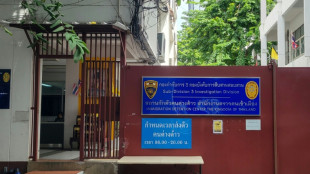
-
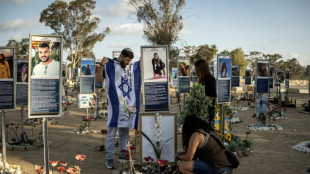 Israel marks October 7 anniversary as talks held to end Gaza war
Israel marks October 7 anniversary as talks held to end Gaza war
-
Indians lead drop in US university visas
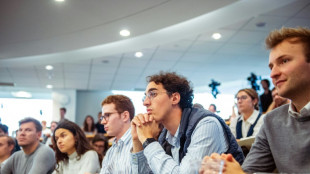
-
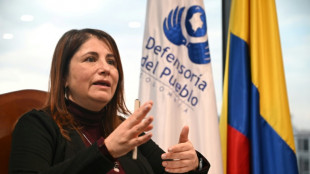 Colombia's armed groups 'expanding,' warns watchdog
Colombia's armed groups 'expanding,' warns watchdog
-
Shhhh! California bans noisy TV commercials

-
 HotelRunner and Visa Partner Globally to Power Embedded and Autonomous Finance in Travel
HotelRunner and Visa Partner Globally to Power Embedded and Autonomous Finance in Travel
-
Trump 'happy' to work with Democrats on health care, if shutdown ends
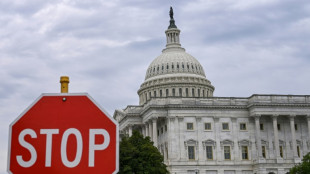
-
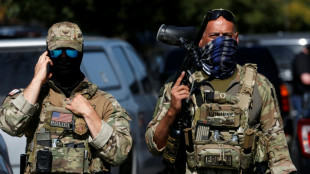 Trump says may invoke Insurrection Act to deploy more troops in US
Trump says may invoke Insurrection Act to deploy more troops in US
-
UNESCO board backs Egyptian for chief after US row
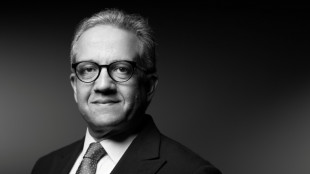
-
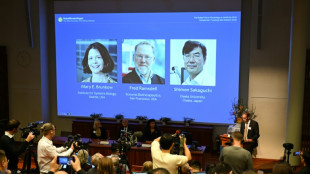 Unreachable Nobel winner hiking 'off the grid'
Unreachable Nobel winner hiking 'off the grid'
-
Retirement or marketing gimmick? Cryptic LeBron video sets Internet buzzing

-
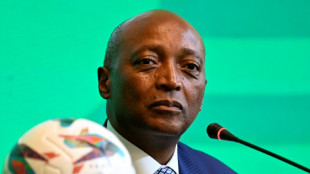 CAF 'absolutely confident' AFCON will go ahead in protest-hit Morocco
CAF 'absolutely confident' AFCON will go ahead in protest-hit Morocco
-
Paris stocks slide amid French political upheaval, Tokyo soars
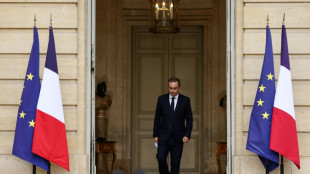
-
 EU should scrap ban on new combustion-engine sales: Merz
EU should scrap ban on new combustion-engine sales: Merz
-
US government shutdown enters second week, no end in sight
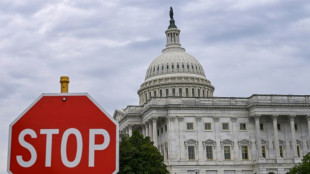
-
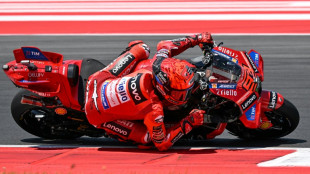 World MotoGP champion Marquez to miss two races with fracture
World MotoGP champion Marquez to miss two races with fracture
-
Matthieu Blazy reaches for the stars in Chanel debut

-
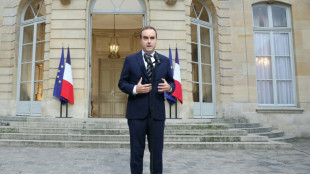 Macron gives outgoing French PM final chance to salvage government
Macron gives outgoing French PM final chance to salvage government
-
Illinois sues to block National Guard deployment in Chicago
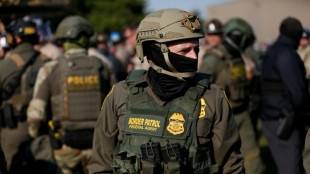
-
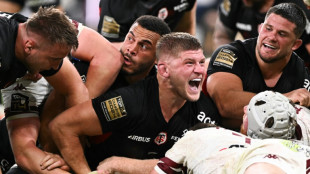 Exiled Willis succeeds Dupont as Top 14 player of the season
Exiled Willis succeeds Dupont as Top 14 player of the season
-
Hamas and Israel open talks in Egypt under Trump's Gaza peace plan
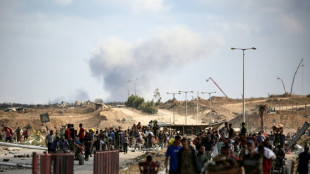
-
 Mbappe undergoing treatment for 'small niggle' at France camp: Deschamps
Mbappe undergoing treatment for 'small niggle' at France camp: Deschamps
-
Common inhalers carry heavy climate cost, study finds

-
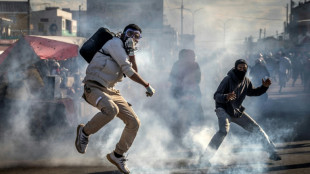 Madagascar president taps general for PM in bid to defuse protests
Madagascar president taps general for PM in bid to defuse protests
-
UEFA 'reluctantly' approves European league games in US, Australia

-
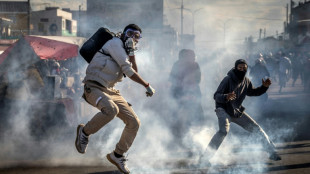 Hundreds protest in Madagascar as president to announce new premier
Hundreds protest in Madagascar as president to announce new premier
-
Greta Thunberg lands in Greece among Gaza flotilla activists deported from Israel


Two separate guerilla attacks kill 18 in Colombia
Two separate attacks blamed on dissident guerilla groups killed 18 people and wounded dozens in Colombia on Thursday, one involving a truck bomb while a drone downed a police helicopter in the other, deepening the country's most serious security crisis in decades.
The latest deadly attacks, which struck the southwestern city of Cali and a coca farm in the north, pose fresh challenges to Colombia's fragile peace processes ahead of elections next year.
Around 3 pm local time (2000 GMT), a truck loaded with explosives was detonated on a busy street near a military aviation school in Cali, killing six people and wounding more than 60, officials said.
"There was a thunderous sound of something exploding near the air base," 65-year-old eyewitness Hector Fabio Bolanos told AFP.
"There were so many injured people," he said.
Eyewitness Alexis Atizabal, 40, said "there were fatalities among people passing by on the avenue."
Images shared on social media showed vehicles on fire, destroyed homes, injured people on the ground and people fleeing in panic amid the sound of alarms and screams.
Cali mayor Alejandro Eder ordered martial law for the country's third most populous city. He also announced a temporary ban on large trucks entering the city and called on the public to report information about the incident for a US$10,000 reward.
Defense Minister Pedro Sanchez blamed the attack on the Central General Staff (EMC) guerrilla group, led by warlord Ivan Mordisco.
The group broke away from the defunct Revolutionary Armed Forces of Colombia (FARC) after it agreed to lay down arms for a historic peace deal in 2016.
- 12 police officers killed -
Earlier Thursday in the northeast of the country, guerrillas from another breakaway FARC group attacked police overseeing the eradication of coca crops, which are used to produce cocaine.
Armed with rifles and a drone, the fighters shot down the helicopter and killed 12 police officers, wounding three more, Antioquia departmental governor Andres Julian Rendon told a press conference.
Defense Minister Sanchez initially blamed the attack on the Clan del Golfo, Colombia's biggest drug cartel.
But he later said the attack was the work of a faction that split from EMC led by a commander under the alias of Calarca.
Many of Colombia's armed groups -- once based on leftist or right-wing ideologies -- are now de facto drug cartels, funding themselves through the lucrative cocaine trade.
The two dissident groups blamed for Thursday's attacks both rejected the peace agreement signed in 2016 with the bulk of FARC after a six-decade-long insurgency. They are also at odds with each other.
Left-wing guerrillas, right-wing paramilitaries and murderous cartels still control pockets of Colombia, but the country has enjoyed years of relative calm.
But there has been a recent surge in violence that experts say demonstrates armed groups are regaining strength and the ability to carry out coordinated, complex attacks.
Former top security officials have voiced concern that the Colombian intelligence services have lost a step and are no longer able to detect and foil plots.
- 'Most painful days' -
Colombians are fearful of a return to the violence of the 1980s and 1990s, when cartel attacks, guerrilla violence and political assassinations were commonplace.
The latest attacks heaped pressure on the government of President Gustavo Petro, whose conciliatory approach to armed groups has been blamed for the uptick in violence.
In response to Thursday's attacks, Petro said dissident guerrillas loyal to Mordisco, another group known as the "Segunda Marquetalia" and the country's largest cartel the Clan del Golfo would be declared "terrorist organizations."
Petro is constitutionally barred from running again in next year's elections.
Earlier this month, Colombia buried 39-year-old conservative presidential candidate Miguel Uribe, who was shot in June while campaigning in the capital Bogota.
Uribe's own mother, journalist Diana Turbay, was killed in a botched 1991 police operation to free her from cocaine kingpin Pablo Escobar's Medellin cartel.
A.Ammann--VB
